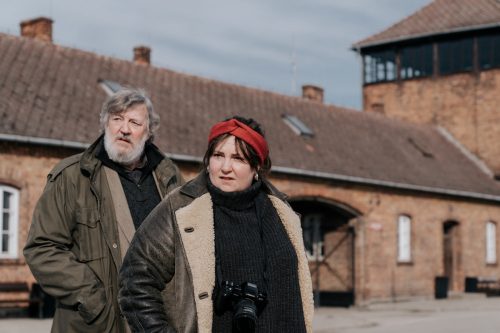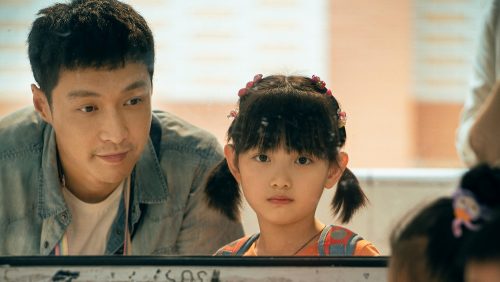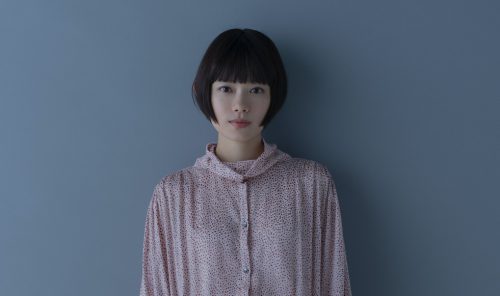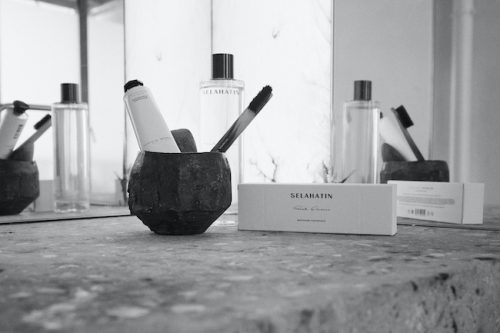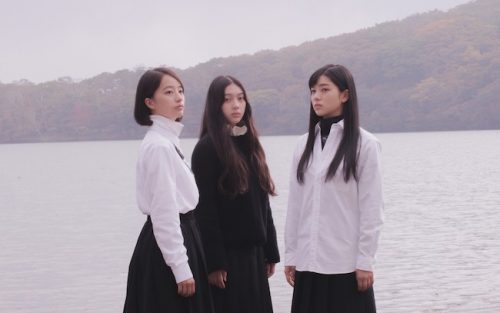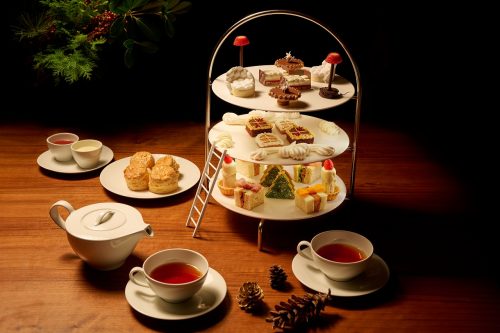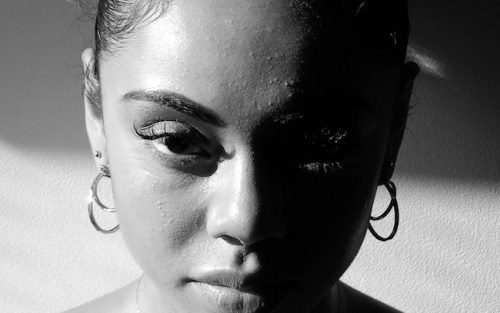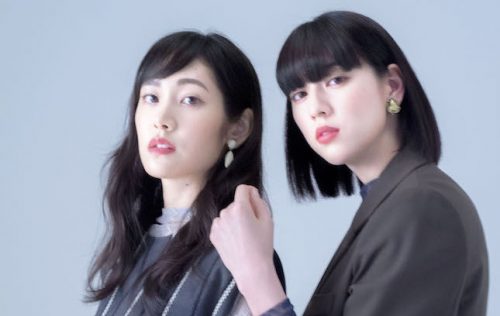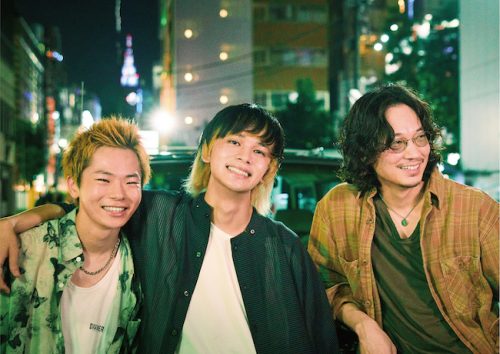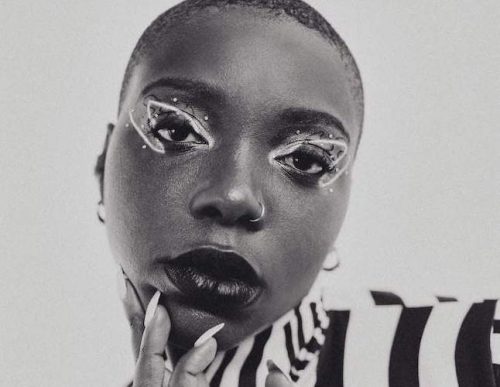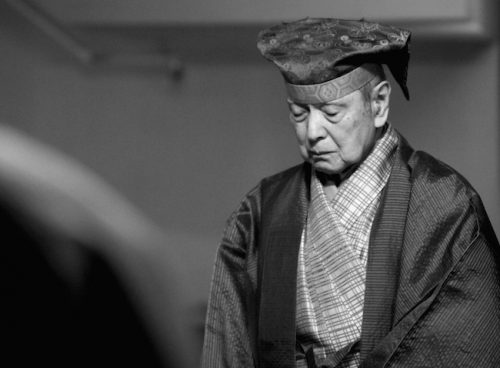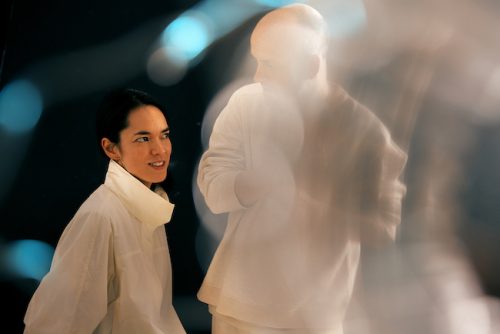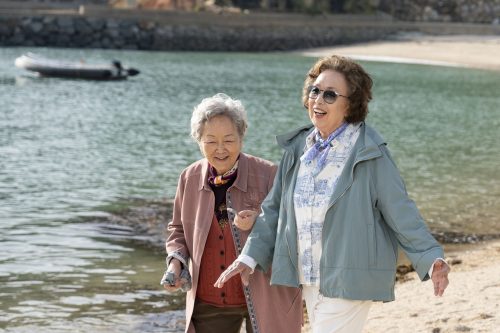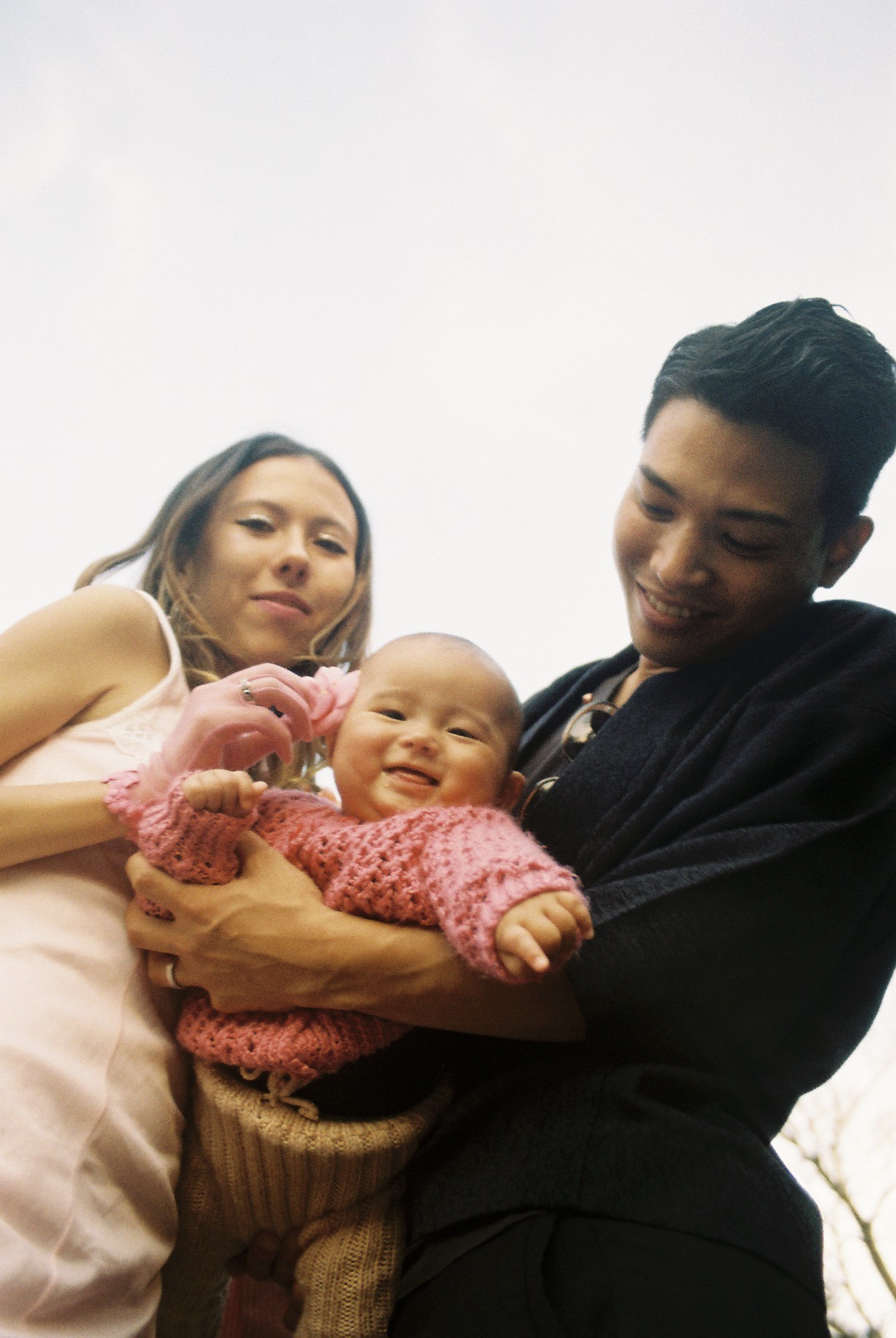
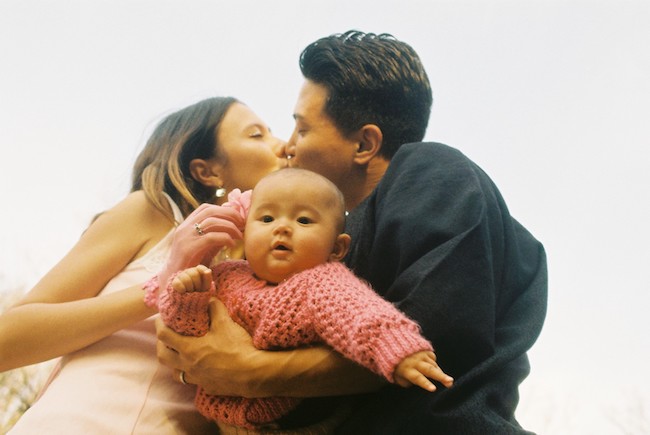
During her days as a student and working across different mediums, Tammy Volpe caught the attention of many for her photos that portray the special yet simple events that occur in our everyday lives. She currently resides in Indonesia, Bali with her husband and eight months year old child, frequently posting about her pregnancy and the joy that comes along it with as well as her time giving birth to shed positive light on the importance of well being and being exposed to the correct information. As a woman, a creator and an individual, she is sharing her chance to think about how to face life and society. We had a chance to catch up with her about her artwork, and her life to hear more about her experiences and insights about our bodies.
――In this month’s issue, we are asking artists if they had any education about their bodies or their sex during their childhood. Did someone educate you on such topics in your household, Tammy?
Tammy Volpe: I lived with very strict grandparents, so we did not have any conversations about such topics ever in our household. I was not allowed to wear short skirts, forbidden to play with boys and told that girls must sit a certain way. I was embarrassed as to how strict they brought me up especially in this era. So no, talking about sex was not even an option to be considered.
――Was your first sex education at school then?
Tammy Volpe: Yes, I think so. But my elementary school was in the middle of nowhere and there were alot of kids being an nunscance during class. So even during sex education, the kids around were too loud screaming, I can’t remember much from that time. The teachers wanted to get it over with as quick as possible because everyone in class was screaming.(laughs) No sanitary napkins were handed out, we were just taught some complex vocabulary about it and no real knowledge that could be useful in real life situations were shared.
――How did you feel when you had your first period, considering you hadn’t had much prior education about such topics then?
Tammy Volpe: By observing my mother having periods, I knew that I was going to get my period when I become an adult. When my period actually came, I felt more as if I had become a ‘women’ more than an adult and I remember feeling a little embarrassed and unable to tell anyone in my family. I was able to tell me friends about it though.
――It’s interesting that you felt embarrassed when it came.
Tammy Volpe : I don’t know why…. In my family, if I wore something even remotely sexy then it would be taken as slutty or shameful and because I was told that from a young age, I guess I felt like turning into a woman was bad. Maybe that’s why when my period came and it felt like a sense of womanhood, I ended up feeling a little embarrassed.
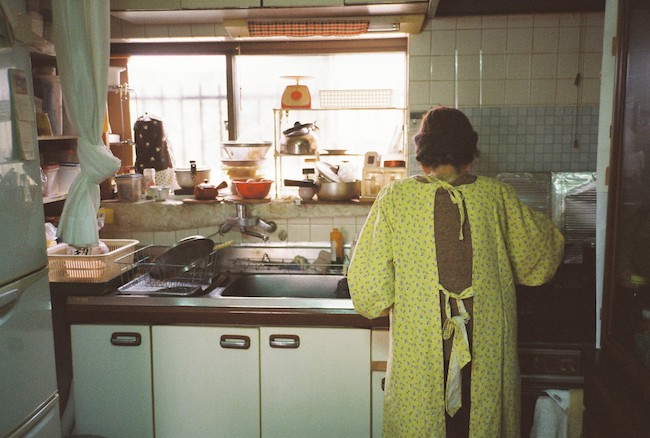
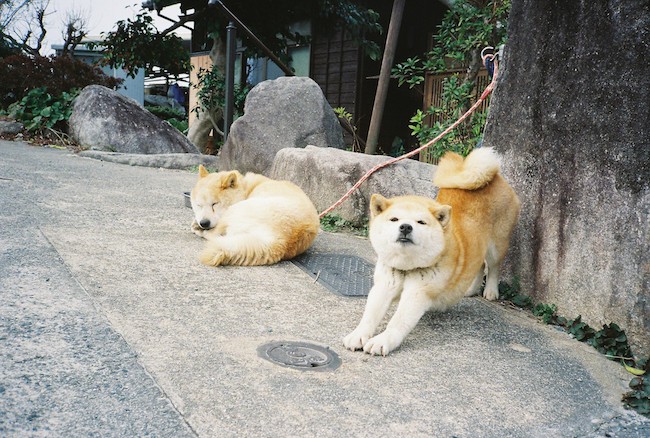
――We would like ask you how you acquired knowledge about sex but because this is a sensitive topic, if you do not want to answer, please don’t hesitate to say so.
Tammy Volpe : That’s very kind of you to say. But you had asked me prior to this interview too so it is totally fine. I got my knowledge about sex from mobile ebooks and manga so I was only gaining skewed information about it at first. It took a lot of mistakes for me to finally realize that the knowledge I had gotten from such books were misleading. I think it is important to spread accurate information about sex and not just soak up the wrong information about it like myself.
――What kind of information would have been helpful, do you think?
Tammy Volpe: For example, I had an image of sex being a very dirty and mischievous act. In my family, sex was considered a shameful act. Even in mobile ebooks and manga, scenes of rape and incest were shown very frequently and I think a lot of young girls are getting false knowledge from such platforms. Japanese shojo manga are pretty brutal in that the main characters of these stories are girls who are getting raped or having a hard time and it can’t be helped if the reader puts themselves into these girl’s shoes and starts believing that being seen as helpless and weak is attractive. What do adults want to get out of selling these sort of books though? If we were able to acquire accurate and safe knowledge about sex, then we would be able to appreciate ourselves more and face it with more positivity. We wouldn’t have to take the long route everytime.
――We think that safe and accurate sex education is important too. You have written in your blog that you now understand that there is a link between love and sex in a relationship. You now have a child with your current partner. During pregnancy, our bodies change drastically but how did you acquire information about that and how did you learn to accept this change that was occurring to you?
Tammy Volpe: I looked it up on the internet. There is a lot of negativity on the internet so if you don’t have an eye to distinguish fact from fiction then this might be dangerous. I found sources that suited what I believed in and looked at blogs and instagram accounts that were founded by mothers that followed organic lifestyles, talked to my other friends that were mothers and read books to acquire knowledge. Everyone is different, so it is important to not take everything that is written for granted. Even for the same person, their second pregnancy may have felt different to their first and it is important to be able to tackle different situations and act accordingly as well as to find yourself within this time.
There are a lot of transformations that happen to your body during pregnancy but I was most surprised by the change in my body hair becoming thicker, bloating and my legs getting swollen overnight. As my stomach began to grow bigger and bigger, I learned to accept these changes that were happening to my body. To be able to accept these changes, it is especially important to take care of your mental state. I stayed in Japan during this time but I realized that hospitals in Japan do not provide mental health care to pregnant women. I was given information about my weight and sleep patterns at the hospital, but when it came to mental therapy, they told me that I would have to attend classes at a different facility that the hospital had recommended. After I learned that I wasn’t able to get mental care from the hospital, I had the opportunity to browse through some maternal clothing in a store called mohouse. Inside the shop, there were pictures of naked pregnant women on the walls. I was so interested that I asked the storekeeper the story behind all of these photographs. He told me that the photographer for these photos had learned that a lot of women in Japan tend to fall into depression during pregnancy and he wanted to show his support towards these women. After I got home, I learned that it was common for women to get depression during their pregnancy in Japan and some women even get counseling. The reason why they get depressed is because, the people around them or their husbands tend to point out changes about their body with a lack of understanding or consideration. They mention about their body hair getting thicker and comment that they aren’t sick so they should do the housework. I held a more peaceful image towards pregnancy, so when I heard about this I was utterly shocked.
―― Now we understand why you posted a photo of your growing stomach with the caption ‘change is without a doubt not something we should feel embarrassed about and have confidence in ourselves without letting heartless opinions get to us.
Tammy Volpe: If everyone knew that these changes were normal then people will not remark heartless comments. The right information is important and the right environment too. In Bali, a pregnant women is considered a presence close to god. Even strangers are friendly to you and I feel as if pregnant women and people with kids are protected. On contrary, I hear a lot of sad stories from pregnant women in Japan. I have a friend who got deliberately bumped into people because she has a maternity mark on. I also had a disturbing experience in Fukuoka when I had the maternity mark on in the bus. My destination was the last stop and I had a lot of luggage with me so I thought that I could ask the bus driver tp help me with some of it. The women behind me remarked very loudly ‘This foreigner has a maternity mark on her. Does she think that she has the right to have the bus driver help her with her luggage?’. I was surprised by her sudden rudeness and it was very daunting at the same time. But I knew I was carrying a precious soul inside of me and I had to protect it in every way possible without letting stress get in the way of my body so I ignored the woman and asked the bus driver to help me with my luggage. In Tokyo, a lot of people would not give up their seat for me when I had the maternity mark on because my stomach wasn’t that big. I think this is because a lot of people don’t know that the first 3 months of your pregnancy is when you are most inclined to get a miscarriage. When I’m in bali I tend to think that the world is peaceful and improving but in Japan I feel like more often than not I have had numerous heartbreaking encounters on the streets.
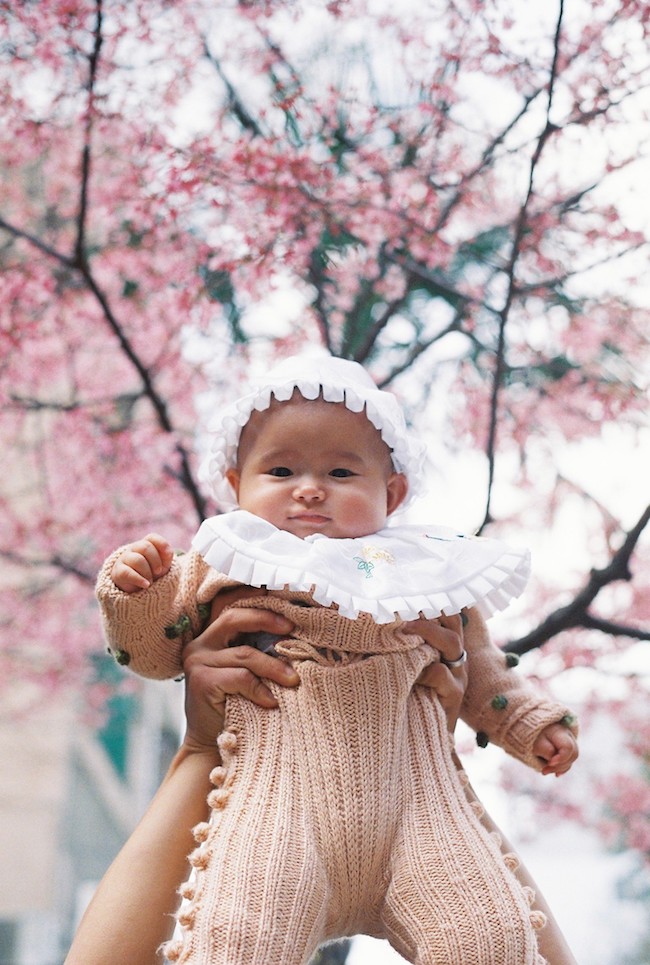
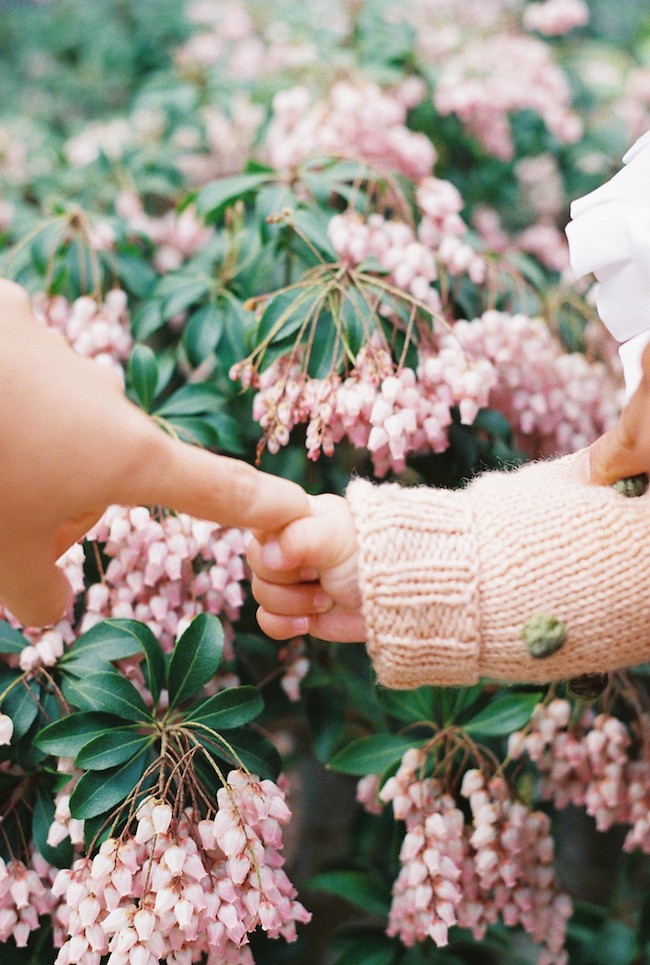
――In a country where it is most important to adjust to society norms, a lot of people are not able to take care of themselves and thus behave towards other people in the same way too. Not only about sex and our bodies but about self expression and self love, we are seriously lagging behind when it come to education about such topics. I believe that this leads to our lack of media literacy. Did you have a natural childbirth?
Tammy Volpe: Yes, I did. I didn’t want to take any medication and I read an article about how painless childbirth can heavily influence the baby so I chose to have a natural childbirth. I believed in the power of the child and that I had a body strong enough to have a baby. I did not give birth in a hospital but I went to a clinic in the jungle and the first priorities of the people in the clinic are on the child and the pregnant women. They don’t cut the umbilical cord immediately after the child is born. Nutrition was passed on to the child from there for a long time so if it is cut off too soon then the baby becomes worried and the nutrition that still remains in the placenta is not able to be passed down to the child so they keep it on for a while. After the child is born, they never seperate the baby from the mother either. I picked this clinic because I thought it best suited me but I think it is important to choose what the best option for yourself is. If medication will lessen the anxiety the mother holds, I think taking it is not bad at all either.
――I think that it is better to choose the right option that you feel most comfortable with. The body is put under a lot of pressure and stress after a pregnancy and you have to watch the child 24/7 so you are under critical circumstances. What did you do to care for your body after the pregnancy?
Tammy Volpe: After my pregnancy, whenever I ran I felt like my uterus was very heavy and sagging. This is probably because I had lost a lot of muscle. I knew I had to endure this. My weight returned to normal because I was constantly holding the baby but I knew I had to do some training for my stomach. I was also surprised that the colour of your nipples change during pregnancy and after pregnancy. When I learned that this is because the baby is able to navigate where they are better, I thought that the human body was very impressive. As for taking care of myself, I would meditate, drink flower remedy and change my diet to eat microbiotics and took breaks when I needed to. Taking breaks without feeling a sense of guilt is a part of the recovery process and leads to mental care so I wanted to take care of myself not only for me but for the baby as well. But I was not able to do all of this immediately after my pregnancy. I left the hospital a day after giving birth so it was hard to take care of the baby when my body had not fully recovered from the pregnancy yet. My husband was working so I realized that I wouldn’t be able to tackle this all on my own and decided to hire a helper to be by me side for three months. I realized that you shouldn’t hesitate to rely on someone else sometimes too. Because my hormones suddenly went back to normal, my mood was unstable and sometimes I would just burst out in tears. I had a hard time mentally and I think it was one of the hardest times of my life. Baby’s are awake even in the night and I was surprised about that too. Nothing is moving at your pace, so it took awhile for me to get into a routine and find balance. After two months, I finally started getting used to it and the baby started to get some sleep and therefore I was able to get some too.
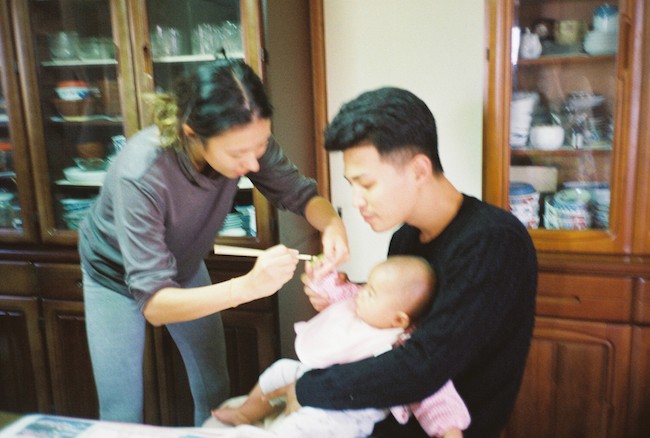
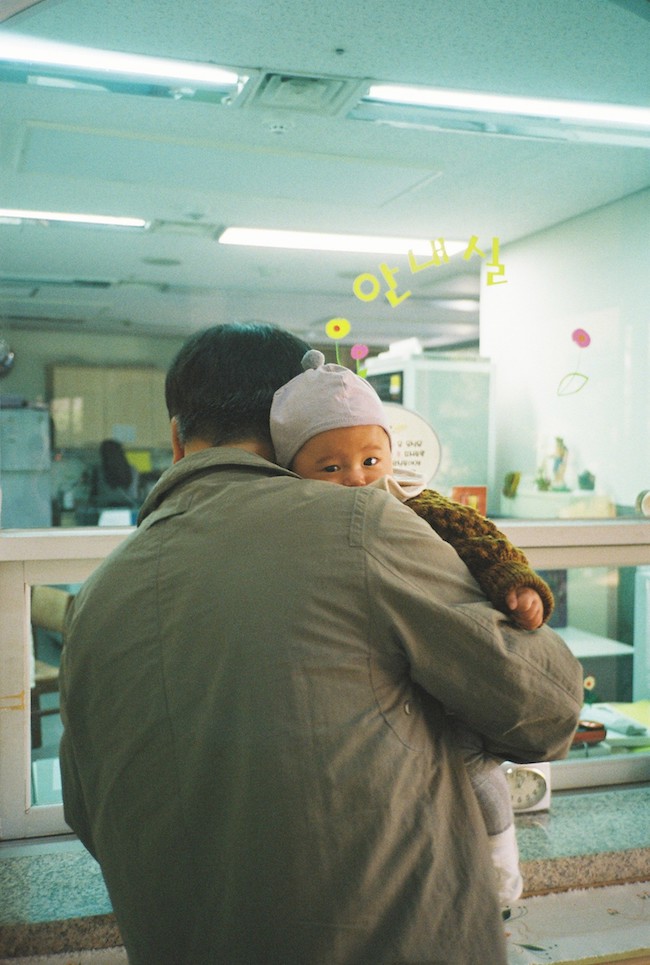
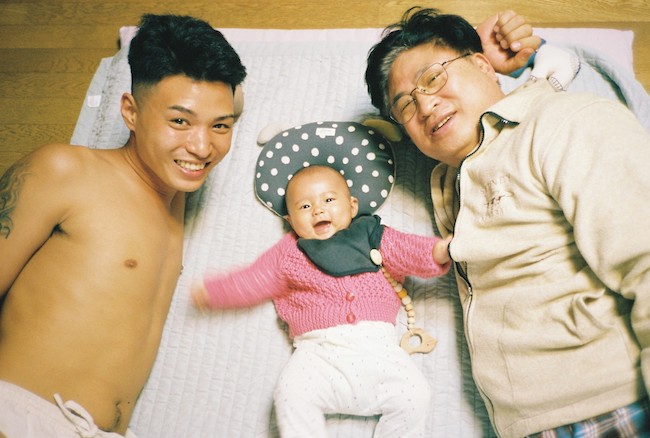
―― I feel like by taking care of yourself you were simultaneously providing a sense of protection to your child. Even before your pregnancy, you seemed to be aware about mental care but what made you become so focused on taking care of yourself?
Tammy Volpe: From way back, I always loved fairies and witches and my father believed in them as well. My mother was the complete opposite and didn’t believe in them at all. My family were buddhists so I grew up in an environment where my grandparents prayed everyday and it was very natural for me to think about selfcare in my lifestyle. My husband was the one who taught me the details on self care and healing. He learned a lot about philosophy, psychology and meditation because he wanted to become a healer and he taught me how to incorporate these lessons into my life. He took me to healing and there was a lot that I realized during these experiences as well as felt the importance of it.
――What did you feel was beneficial about incorporating selfcare into your lifestyle?
Tammy Volpe: I was able to accept myself for who I was and be conscious about it. If you are conscious of how not to judge yourself as good or bad, then you are able to become nicer in various situations and that realization left a huge impact. If you think too much about how you are perceived by others you end of self loathing yourself and become depressed. Rather than doing that I want to make artwork that reflects my honest way of living.
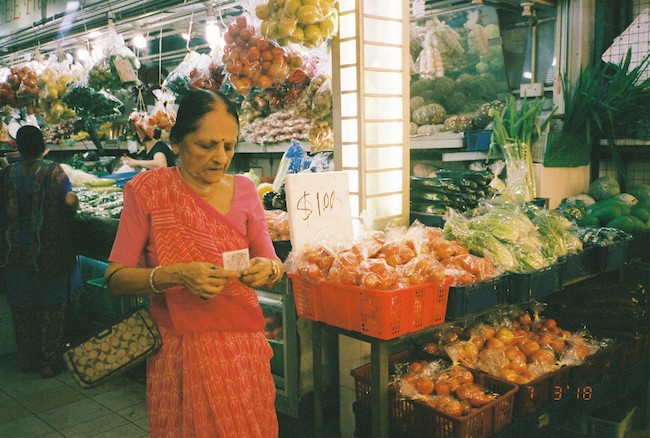
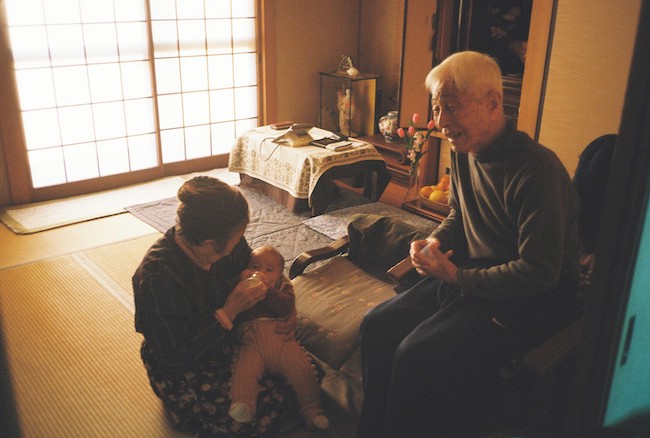
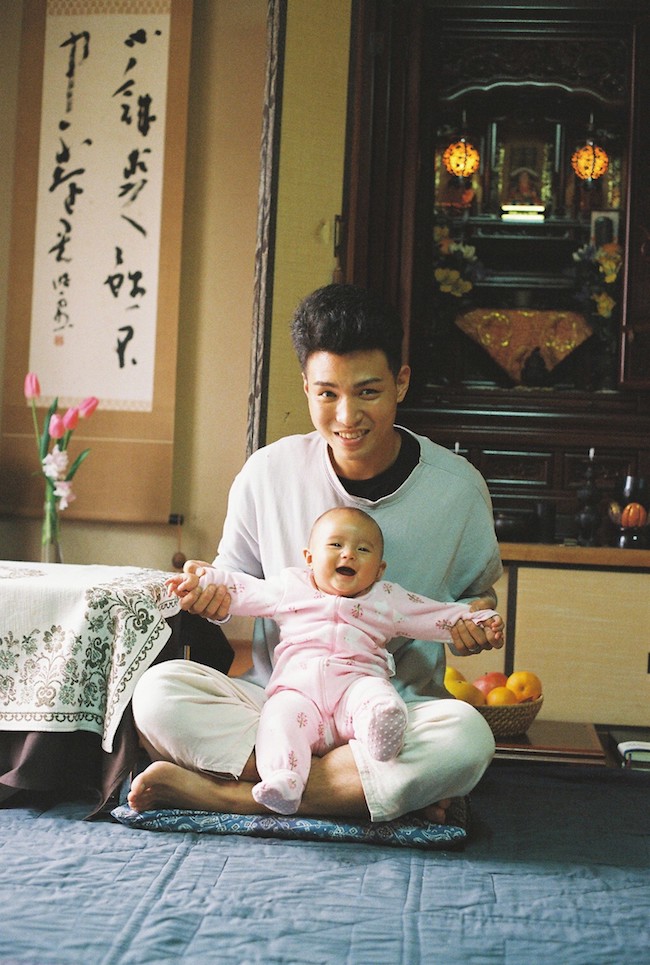
――Your photographs really portray your current state. As for creativity, photography is an action that links the physical with the mental. How do you find balance between those two and how were you able to hone that balance.
Tammy Volpe: The link between physical and mental in photography as you mentioned is completely accurate. The photographs that I am taking at the moment are 100% from instinct and my body moves without thinking and takes whatever I feel is beautiful in everyday life experiences. I always have my camera with me and it is a part of my body. I can’t take conceptual photos now and don’t consider what angles are better or worse. Before, I would get requests to take photos from certain angles and a part of me wanted to take photos that had a certain demand but it gradually changed to wanting to remain as I was.
―― You have now moved on to making accessories with your hands.
Tammy Volpe: I initially started doing it because I wanted to donate something to the clinic that I gave birth. I was thinking about what I could do to give back. I was wearing a necklace that I had made from beads when my friend mentioned that a friend of a friend wanted to buy one of my pieces. I thought that if there was someone who wanted to buy one of my creations then it would be a better cycle if I just donated them to people who wanted it. I took the materials into consideration as well, only using vintage beads and shells, natural rocks that were environmentally friendly. I get inspiration from shapes of nature and the circle of life. From a young age, I always loved to draw and and make clothes for my stuffed animals so I was always moving my hands and mentally it helps me because it is a way of meditation.
――I see. During your studies, you started to take photographs and often times women would be the subject of your photos. Compared to when you first started out, do you think that the rights that women hold or the way of living for them has changed in anyway?
Tammy Volpe: Putting aside whether this is good or bad, I believe that opportunities to talk about such topics have increased compared to the past. A lot more people have become exposed to the word feminism and people are becoming more aware of it. I feel like my conscious towards it have changed as well. From a young age, I was not only given the label of a woman but also the label of hafu so I have always been cautious as to not put people into such categories. For example, for subjects of my photographs, I don’t symbolize them but rather communicate with each person as an individual. Before, I wasn’t able to let go of such labels and constantly asked myself why and I was angry at myself as well as felt the need to fight back if people ever looked down on me because of it. But after countless searches, I realized that rights are something that humans made up themselves and although it is something that a person is born with, some people do not understand that all humans have the same rights and therefore, discrimination occurs. So now, I don’t really think about it because I have come to the conclusion that everyone including myself has rights. My thinking process has become much more simple and now I am able to accept whatever people say to me and wash it off as ‘ it doesn’t matter because I have rights too’. It has become a lot easier than before but in the past there were a lot of hard times and it was very stressful. I believe this is something that all women go through even though it is a road that is not necessary.
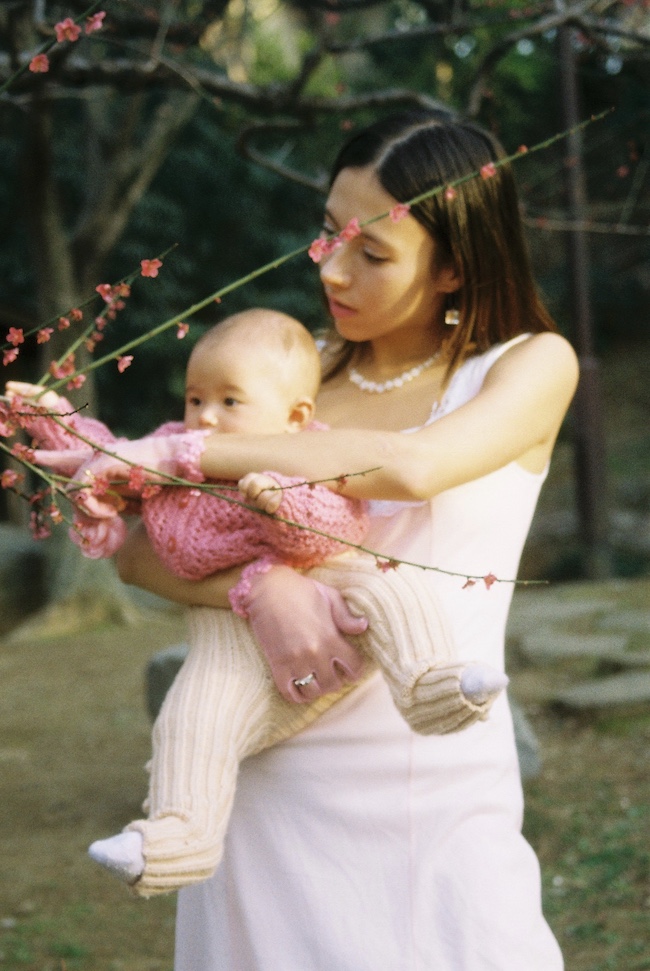
―― In your honest opinion, what do you think about the bill that was passed in Alabama to ban abortion?
Tammy Volpe: “Wait why?” was my reaction. No one should be able to deprive you of the right to decide what to do with your body and having excess control over someone else’s life will deprive them from the power to live. It is important to accept each other for who we are but because a baby is seen as a gift from god, people seem to ignore there right as an individual and control their actions which is scary and I am very angry because of this. As a mother, I sympathize with the mother’s who had been raped and were forced to give birth to their child and it breaks my heart. I am worried about whether or not they can overcome the pregnancy, worried that the mother may abuse the baby after it is born and I am worried for the baby that is born under a mother with that mental state.
――Regardless of the backlash, how would you like to influence society with your work. Moreover what kind of world would you like future generations to live in?
Tammy Volpe: I want the world to be filled with the truth and accurate information. I want more opportunities to learn how to control your feelings. This is something I mentioned earlier but I want people to be able to accept themselves for who they are. By portraying my honest self in my photos, I want to inspire people to live life as who they are and not have to act like something they are not. Last but not least, I want people to see the beauty in the little things that happen in our normal everyday lives.
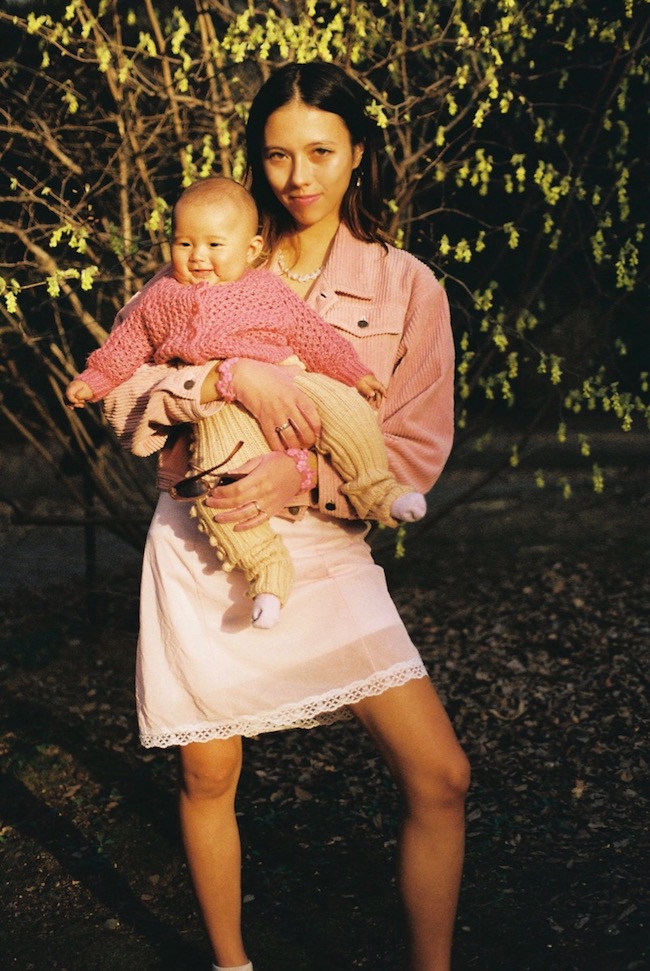
photography Tammy Volpe
text&edit Ryoko Kuwahara
Our Body Issue : Interview with Tammy Volpe “自分に対して良い悪いというジャッジをしない意識を持てば、色んな状況に対しても良し悪しの決めつけをせず優しくなれる、そういうことに気づけたのは大きかった”
1 2

